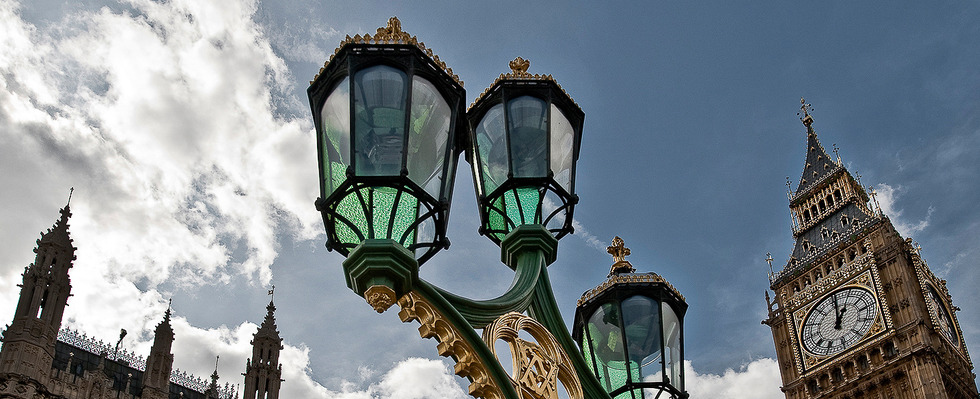A Note to Our Catholic Politicians
On 22 July 1966 the Medical Termination of Pregnancy Bill passed its second reading in the House of Commons with a massive vote of 223 votes for with only 29 against. The sponsors of the new legislation were astonished by their overwhelming success. Even among Catholic parliamentarians only a handful voted against the bill, as the pro-life Norman St John-Stevas MP noted at the time:
“As I was going through the lobby, Mr Enoch Powell, the one member of the Shadow Cabinet to vote against the Bill, turned to me and said: ‘Where are the Romans?’ Where indeed!”
Ever since, legions of Catholics engaged in parliamentary politics have proved complicit in the creation of laws that equally disregard the dignity of the person and thus undermine the common good.
“Sadly, however, on serious issues, some politicians who profess a Catholic faith remain silent – or even surrender – in the face of grave ethical injustice”, observed the Bishops Conference of Scotland in their pastoral letter marking the recent UK general election.
Scandalous? Certainly. Incomprehensible? No. The fact is that most Catholics in the United Kingdom – of almost any age – have been failed by erroneous or even non-existent catechesis. Catholic politicians included. They can’t love what they don’t know. They can’t uphold what they don’t understand.
So what is to be done? Thankfully the Scottish bishops chose not only to curse the political darkness but also to light a candle.
“The time has come for a new generation of Catholics to join political parties and to dedicate ourselves to political service in a way that remains faithful to the Gospel of Jesus Christ, laying the foundations for a new Civilisation of Love that serves the common good of all, especially the most vulnerable in our society”.
For this to happen, however, several things have to be achieved. Intellectually, it requires a public re-presentation of the Catholic faith – one that shows it to be harmonious with reason – as called for by Pope Benedict XVI in Westminster Hall in 2010.
“I would suggest that the world of reason and the world of faith – the world of secular rationality and the world of religious belief – need one another and should not be afraid to enter into a profound and ongoing dialogue, for the good of our civilisation,” Benedict said.
The encouraging evidence from around the United Kingdom – witness this month’s article by Bishop John Keenan – is that the call of Pope Benedict is finally being heeded.
Politically, we need to provide much better formation for those young Catholics who would aspire to a life of public service; we also need to enhance our support – including spiritual support – for those already embarked upon this noble vocation. The next generation of Catholic politicians will require a well-developed and clear-sighted vision of the common good, coupled with the virtues of courage and prudence to pursue it.
The result will be a new type of Catholic politician who is capable of campaigning with clarity, compassion and flair on key ethical issues. Merely voting the right way when legislative push comes to shove is laudable but it’s not sufficient, as a glance across the Atlantic to Washington, DC, will show.
There on Capitol Hill you will find Congressman Chris Smith and Congressman Dan Lipinski. The former is a short, stocky Republican from New Jersey. The latter is a tall, thin Democrat from Illinois. Both are practising Catholics. Together they chair the Congressional Pro-Life Caucus, a grouping of politicians who pursue their cause with intelligence, creativity and fearlessness.
“The passage of time hasn’t changed the fact that abortion is a serious, lethal violation of fundamental human rights,” Congressman Smith told more than 600,000 people gathered in Washington DC for the 2014 March for Life.
“[Nor the fact] that women and children deserve better. And that the demands of justice, generosity and compassion require that the right to life be guaranteed to everyone”.
The fact that the majority of Americans – especially the young – now consider themselves pro-life is, in part, due to the unstinting efforts of Catholic politicians like Smith and Lipinski. They should be applauded.
While role models closer to home are fewer in number, they can be found. For nearly five decades, Lord David Alton has consistently spoken up when others remained silent. His wide range of political passions bear the hallmark of a Catholic faith that seeks to uphold human dignity wherever it is threatened. There are many who disagree with Lord Alton. There are few who disrespect him.
Then there is the pole star – and patron saint – for all Catholics involved in political life: Sir Thomas More. The heroic virtue he displayed in death was the result of a life rooted in deep personal prayer and ascetic discipline.
The one-time Lord Chancellor is a stark reminder that saints are not born but made. Catholics returning to Westminster – or even entering for the first time – should take note.
The campaign is over. The government is formed. The work of parliament continues. Business as usual? We pray not.






